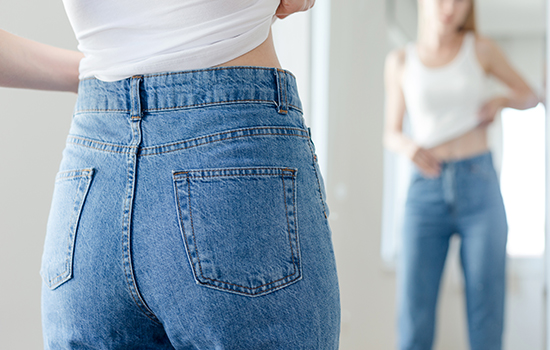| 4 capsules contain | |||
|---|---|---|---|
| A combination of vegetable free fatty acids | 2,000 mg | ||
| of which | |||
| conjugated linoleic acid (CLA) | 1,600 mg |
Product Facts
Dosage
4 capsules per day, unless advised otherwise.
Do not exceed the recommended daily dosage.
Do not chew capsules but swallow them whole, preferably during/after meals.
Dietary supplements should not replace a varied diet.
A healthy lifestyle and a varied diet are important for maintaining good health.
Pregnant women and children under two years of age should only use CLA after consultation with a physician.
Ingredients
A combination of free fatty acids from vegetable safflower oil with 80% CLA, gelatin, glycerol.
Storage
Dark, dry and at room temperature.
A cold storage temperature can change the oil in the capsule just like when olive oil is kept in the refrigerator.
Keep out of reach of young children.
Bio-C.L.A. can be combined with Bio-Selenium+Zinc or Bio-Multivitamin.
What is Bio-C.L.A.?
Bio-C.L.A. contains soft gelatin capsules with conjugated linoleic acid (type t10,c12 & c9,t11) in a 1:1 ratio. The CLA content is in the form of highly- assimilable free fatty acids.
What is CLA?

CLA (Conjugated Linoleic Acid) is a naturally occurring, polyunsaturated fatty acid that is found in the meat of ruminants (cows, sheep, etc.) and dairy from these animals. It is formed in the rumen of grazing cattle in a process where linoleic acid from grass is transformed into CLA. Some of the best sources of CLA are beef and dairy products like milk, cheese, and yoghurt. CLA is a GRAS-certified (Generally Recognized as Safe) dietary supplement.
Healthy ingredients
CLA is a natural part of our diet, and the meat and dairy industries have contemplated adding CLA to certain foods as a way of restoring the natural CLA content to a level one could find in the days where nearly all cattle was free-range and therefore got sufficient amounts of linoleic acid by grazing.
Variations in gelatin hardness
The hardness of our soft gelatin capsules can vary. The difference depends solely on the water content of the capsule shell. We dry all our soft capsules before packaging, which makes the capsules firmer and facilitates the packaging process itself. Over time, the capsules can absorb water from the air, and this will soften the capsule shell.
The variations in the hardness of the capsule have no effect on the product quality, but if a hard capsule is a problem, a solution may be to leave the capsule outside the blister sheet for a day, whereby the capsule can absorb a little water from the air. This is generally not something we recommend, as the product will no longer be protected as when it is in the blister sheet. Another method of quickly softening the gelatin capsule is to place it in lukewarm water for one minute. However, it should be seen as an emergency solution.
What are free fatty acids?
In our diet, fats occur in the form of triglycerides that must be broken down into "free" fatty acids before the digestive tract is able to absorb them. This process is enabled by a digestive enzyme called lipase. Bio-C.L.A. contains conjugated linoleic acid in the form of free fatty acids that have already been broken down and are ready for use. The advantage with this type fatty acids is that they can be absorbed directly, even by individuals with impaired lipid uptake.

